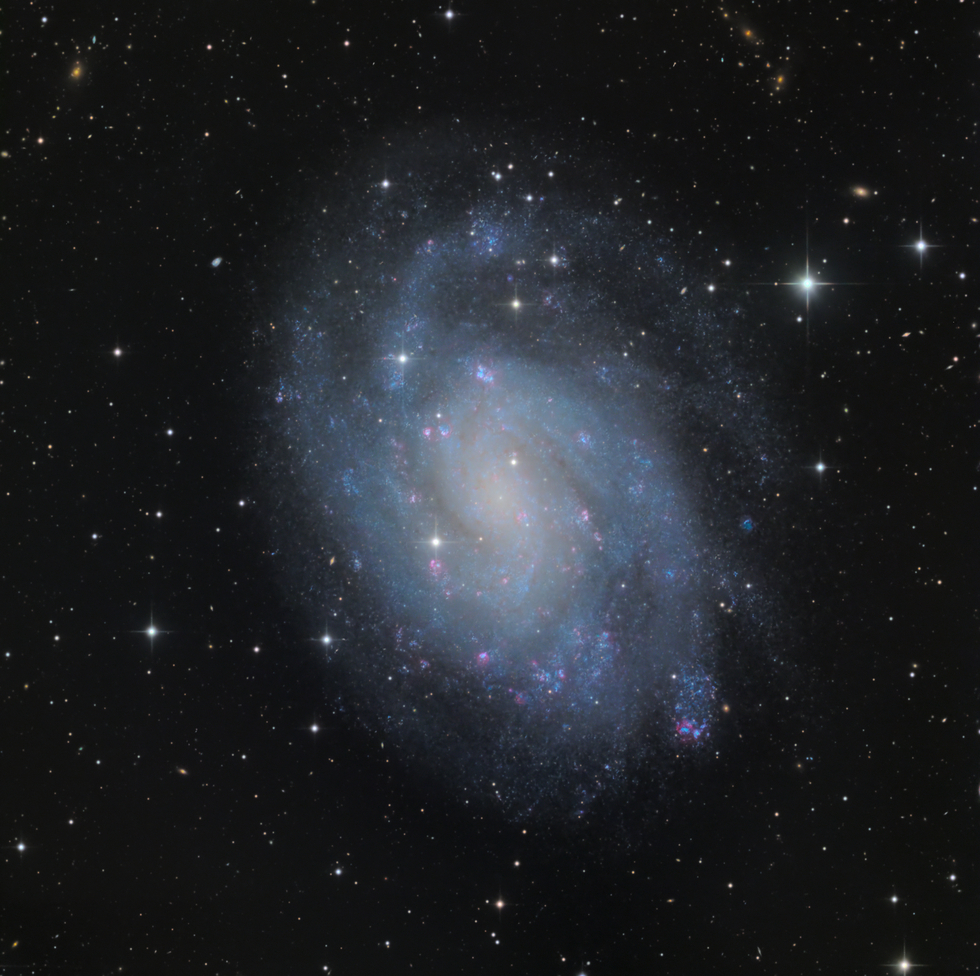NGC 300
NGC 300
NGC 300 is a spiral galaxy in the constellation Sculptor. It is one of the closest galaxies to the Local Group, and probably lies between the latter and the Sculptor Group. It is the brightest of the five main spirals in the direction of the Sculptor Group. It is inclined at an angle of 42° when viewed from Earth and shares many characteristics of the Triangulum Galaxy. It is 94,000 light-years in diameter, somewhat smaller than the Milky Way, and has an estimated mass of (2.9 ± 0.2) × 1010 M☉.
NGC 300 is a relatively young galaxy, with an estimated age of only 2 billion years. This means that it is still forming stars at a relatively rapid rate. In fact, NGC 300 is one of the most active star-forming galaxies in the Local Group. The galaxy's central region is home to a large number of young, hot stars, which emit intense ultraviolet radiation. This radiation causes the surrounding gas and dust to glow, creating a beautiful nebula known as the NGC 300 Nebula.
NGC 300 is also home to a number of globular clusters, which are spherical collections of stars. Globular clusters are thought to have formed early in the history of the galaxy, and they can provide astronomers with important clues about the galaxy's formation and evolution.
NGC 300 is a relatively easy galaxy to observe with a small telescope. It is located in the southern constellation of Sculptor, and can be found near the star Alpha Sculptoris. The galaxy appears as a faint smudge of light, but with a telescope it is possible to see some of its spiral structure.
NGC 300 is a relatively young galaxy, with an estimated age of only 2 billion years. This means that it is still forming stars at a relatively rapid rate. In fact, NGC 300 is one of the most active star-forming galaxies in the Local Group. The galaxy's central region is home to a large number of young, hot stars, which emit intense ultraviolet radiation. This radiation causes the surrounding gas and dust to glow, creating a beautiful nebula known as the NGC 300 Nebula.
NGC 300 is also home to a number of globular clusters, which are spherical collections of stars. Globular clusters are thought to have formed early in the history of the galaxy, and they can provide astronomers with important clues about the galaxy's formation and evolution.
NGC 300 is a relatively easy galaxy to observe with a small telescope. It is located in the southern constellation of Sculptor, and can be found near the star Alpha Sculptoris. The galaxy appears as a faint smudge of light, but with a telescope it is possible to see some of its spiral structure.
SPECIFICATIONS
Telescope
CHI-1
Camera
FLI PL 9000
Location
Río Hurtado, Coquimbo Region, Chile
Date of observation
Bundle
Filters
LRGB
Processing
Pixinsight
Credits
Telescope Live/ Fred Zimmer



